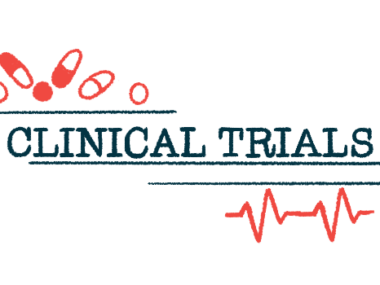FDA expands Vemlidy to chronic hepatitis B patients as young as 6
New label expansion supported by data from ongoing, recruiting global trial
Written by |

The U.S. Food and Drug Administration (FDA) has again expanded its approval of Gilead Sciences’ medication Vemlidy (tenofovir alafenamide) for chronic hepatitis B to patients as young as 6 years.
Vemlidy is an antiviral medication that stops the hepatitis B virus from multiplying. The once-daily oral therapy was first approved by the FDA in 2016 for adults with chronic hepatitis B virus infection and compensated liver disease, meaning the liver is still able to function. The agency expanded the approval in 2022 to include patients as young as 12.
With the new expansion, Vemlidy is now indicated for the treatment of chronic hepatitis B in patients 6 and older who weigh at least 25 kg (about 55 lbs) and who have compensated liver disease.
“The expanded indication for Vemlidy for the treatment of children as young as six years old is a testament to the safety, tolerability and efficacy profile of this therapy,” Frank Duff, MD, senior vice president, virology therapeutic area head at Gilead Sciences, said in a company press release.
Vemlidy recommended as preferred or first-line treatment for adult patients
Guidelines from the American Association for the Study of Liver Diseases and the European Association for the Study of the Liver recommend Vemlidy as a preferred or first-line treatment for adults with chronic hepatitis B and compensated liver disease, according to Gilead.
A day after the new FDA ruling, the World Health Organization announced updated guidelines for the management of chronic hepatitis B. In addition to new guidance for diagnostic tests and preventing transmission of the virus from infected pregnant women to their children, the new guidelines for the first time include treatment eligibility criteria for adolescents, not just adults.
For Vemlidy, the guidelines recommend its use for patients with bone and kidney problems and as an alternative first-line treatment for adolescents. Of note, the new guidelines considered the therapy’s previous indication, to patients as young as 12 years.
Hepatitis B is a virus spread through contact with bodily fluids. It infects the liver and usually causes acute liver damage. In some cases — particularly if the infection occurs in early childhood — it can cause long-term chronic infections that set the stage for serious complications like permanent scarring of the liver, or cirrhosis, and liver cancer.
If left untreated, hepatitis B can lead to cirrhosis, cancer of the liver
“Chronic hepatitis B can have a significant and lasting impact on the health of children. If left untreated, hepatitis B can lead to liver cirrhosis and liver cancer,” said Chuan-Hao Lin, MD, associate professor of clinical pediatrics at the Keck School of Medicine of the University of Southern California.
“As a clinician, I am well aware of the critical importance of promptly treating this disease to avoid possible complications and liver damage,” Lin added.
The FDA’s expansion of Vemlidy for children as young as 6 was supported by data from an ongoing Phase 2 clinical trial (NCT02932150), which is testing the therapy’s safety and efficacy in up to 150 children, ages 2 to 17, with chronic hepatitis B.
The trial is actively recruiting participants at sites in the U.S., Romania, Taiwan, Korea, India, and New Zealand, regardless of whether they had received previous antiviral treatment.
The regulatory decision was specifically based on findings from 18 patients ages 6 to 11 and weighing at least 25 kg. The children were randomly assigned to take 25 mg of Vemlidy or a placebo, once daily for about six months, after which all were treated with Vemlidy for an additional four years.
Chronic hepatitis B can have a significant and lasting impact on the health of children.
Data show Vemlidy suppressed virus growth in children, adolescents
Results indicated the therapy stopped the growth of the virus as designed, leading to progressive increases in the rates of viral suppression through two years since the start of the study and in children and adolescents.
Vemlidy was generally well tolerated in children after up to two years of treatment, with the most commonly reported adverse events being the common cold, headache, COVID-19, fever, diarrhea, respiratory tract infection, cough, and upper abdominal pain.
In the overall patient population, the reported treatment-related side effects were upper abdominal pain and kidney damage, each documented in two out of 88 total patients evaluated.
“The clinical trial demonstrated that [Vemlidy] may represent an effective treatment option for children as young as six years old affected by this chronic disease,” Lin said.
Vemlidy carries a boxed warning noting that stopping the therapy can lead to a sudden resurgence of hepatitis B, so patients who start on the medicine but then stop will require close monitoring and may need additional antiviral therapies.








